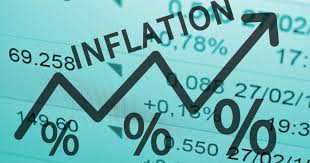Financial experts say increase in the Monetary Policy Rate (MPR) set by the Central Bank of Nigeria (CBN) may not address the rising inflation in Nigeria.
They spoke in Ibadan on Friday, including Mrs Lolade Adesola, a Financial Consultant at L.A. Consult, who said it was demand that caused inflation to go up, adding that increasing MPR to curb inflation, might not work for us in Nigeria.
“The demand caused inflation to go up; when that happens, the Central Bank of Nigeria (CBN) tries to reduce demand by increasing interest rate so, that people can put their money in a fixed deposit.
“But we have a peculiar issue in Nigeria which is the fact that
is very low and people are not financially well off.
“The demand that they think is there is not real, as more people are below the poverty line.
“So, while this might be a textbook solution, we will just wait and see if it will work for Nigeria, because there are so many other indices, but definitely, what they have done is the textbook solution,” Adesola said.
According to her, there are other things that should have been done in addition to what they did, which may not be the duty of CBN.
“For a country to grow, it is not only monetary policy that is required.
“CBN is in charge of monetary policy and Fx policy, but the Federal Government is in charge of fiscal policy, industrial policy and trade policy,” she said.
Adesola said that there was need for synergy between policies of the CBN and the Federal Government for economic development.
Another financial expert, Mr Tunji Adepeju, said that the one per cent added to the monetary policy rate by CBN was the rate at which banks would borrow money from the apex bank, which he said “is a base rate for banks to give interest to their customers”.
Adepeju said, according to the CBN, it was a means to fighting inflation, but unfortunately, the Nigerian situation is “a demand-pull-inflation” .
“When there’s excessive demand, as a result of goods that are scarce, there is no way prices will not go up.
“The implication with MPR at 14 per cent is that it will increase cost of goods and services,” Adepeju said.
He said that though, CBN said the policy would encourage savings, how do you save when your income is not covering your expenses.
“It will be a tough one on individuals having them to save from wherever they earn now.
“But on corporate entities or industries, there might be no problem, because most of them are groaning over high cost of diesel.
“Some of them have produced and they don’t have buyers to buy their goods. So, where is the money to save will likely come from.
“I don’t know how they came about the MPR, but I think it will create more problem for us than reducing inflation,” Adepeju said.
Also, Mr Samson Olalere, an Economist, said the policy would bring more hardship to the people.
“By now, the government should have got hold of the economy.
“Everyday, we have a policy somersault and this doesn’t augur well for the development of the country. For MPR to be at 14 per cent is not a good step for the development of the country.
“When you juxtaposed that with the increase in fuel price, it clearly shows lack of direction. This is not good for the economy whatsoever,” Olalere said.




